Photojournalist Rizek Abdel Jawad was trying to buy a tent in his hometown of Gaza City shortly before he was forced to flee due to the ongoing Israeli ground invasion, when he heard the sound of bombs from Israeli planes.
Terrified, he went to the place where the bombing had occurred, finding that an Israeli missile had destroyed the local Bank of Palestine near a busy marketplace.
His video footage from the scene, posted on social media, shows at least one building reduced to ruins, and neighbouring structures badly damaged. A representative of the Bank of Palestine confirmed in a message to the NB Media Co-op that its main branch had been destroyed.
Jawad is one of the Palestinians in Gaza who is in regular contact with a network of volunteers called Connecting Gaza, including people here in New Brunswick. Lately, he’s been sharing his photos, videos, and reflections with the NB Media Co-op amid the daily struggle to survive.
Outside the ruins of the bank, men and young boys can be seen leaving the area, their arms filled with construction debris.
Jawad explained: “Many houses are bombed by Israeli aircraft. Sometimes the Israeli army contacts the owner of the house and asks them to leave within 10 minutes. Therefore, the owner of the house or apartment cannot bring anything from the house during this time. After the bombing and the destruction of the houses, the owners go to get what they can.”
That includes debris for firewood to cook food. “The price of a kilo of wood in the Gaza Strip today has reached three dollars per kilogram,” he said in the Sept. 25 message.
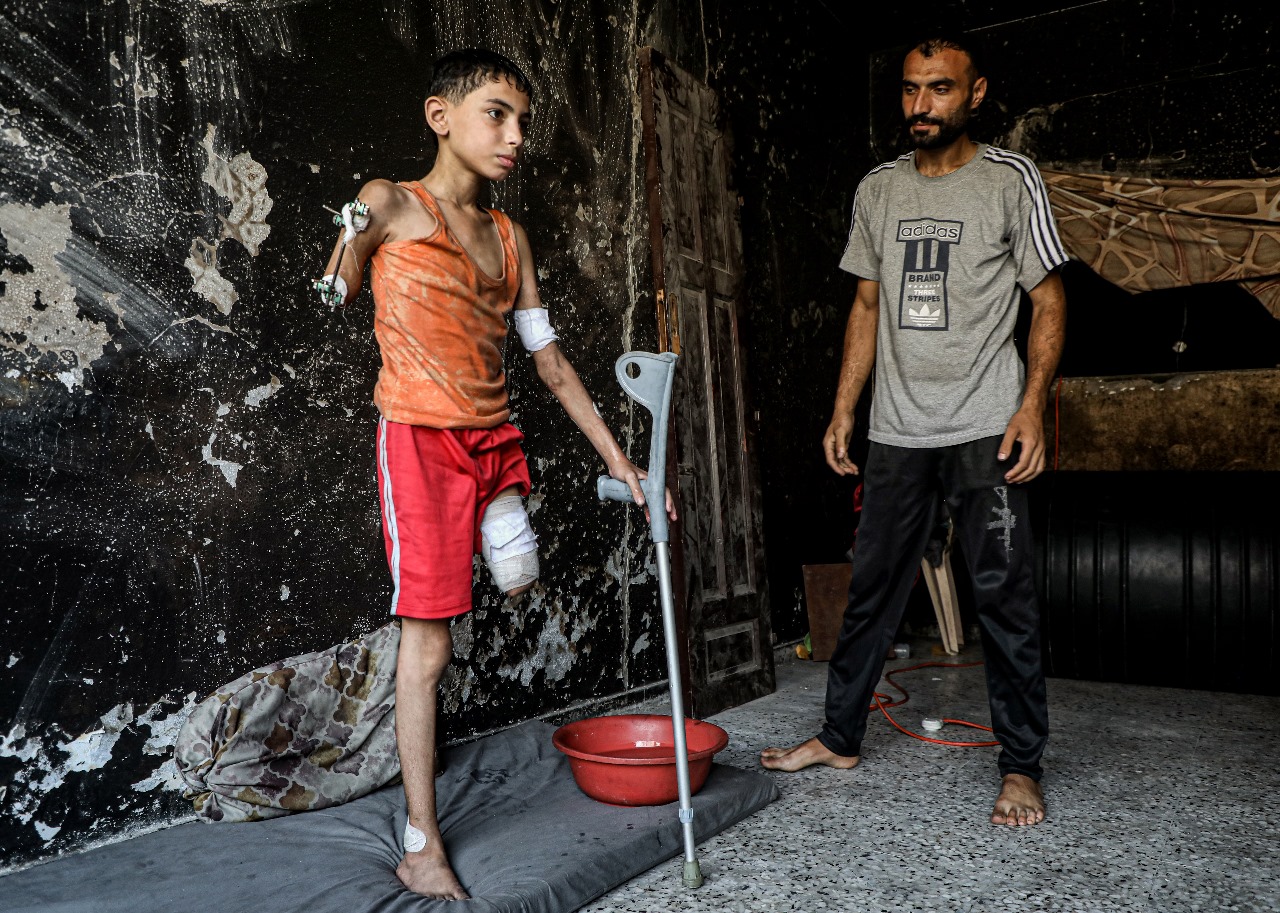
It’s part of the daily misery experienced by those at the brunt of Israel’s assault. The Gaza Strip is now “uninhabitable,” Jawad said.
An accomplished photojournalist — his work has been published by the Associated Press and the Chinese news service Xinhua — he’s been bearing witness to the destruction while keeping in contact with allies in this country.
The NB Media Co-op attempted to interview Jawad with English-Arabic interpretation, but at one point he was out of communication for days due to a telecoms blackout as Israeli forces advanced on Gaza City.
Later, the connection was too unstable as he sheltered in a displacement tent in Khan Younis. Instead, we have relied on a instant messaging and translation apps.
“I have a large group of friends from Canada,” he said in one message. “They have been providing support since the war started here. Moral support is very important in the circumstances we are in,” he said. But material support is also crucial because of the high cost of necessities, as Israel has blocked aid shipments.
Connecting Gaza describes itself as “a global network of compassionate individuals united by one urgent goal: supporting Palestinian families in Gaza as they endure genocide.” The 1948 United Nations Convention defines genocide as crimes committed “with intent to destroy, in whole or in part, a national, ethnic, racial or religious group.”
Watch the interviews with members of Connecting Gaza:
Volunteers from Canada, the United States and Britain stay in contact with Palestinians in Gaza via WhatsApp, to help break the isolation of life in the Gaza Strip — often described as an open air prison — under conditions of military occupation, famine, and daily bombardment.
Fredericton residents Rebecca Burns and Reena Cabanilla are part of the Connecting Gaza network. In an interview, they expressed profound sorrow and outrage over the suffering they’ve confronted through the eyes of people in the Gaza Strip.
“Our leaders are not doing enough to stop this,” Cabanilla said as she broke down in tears.
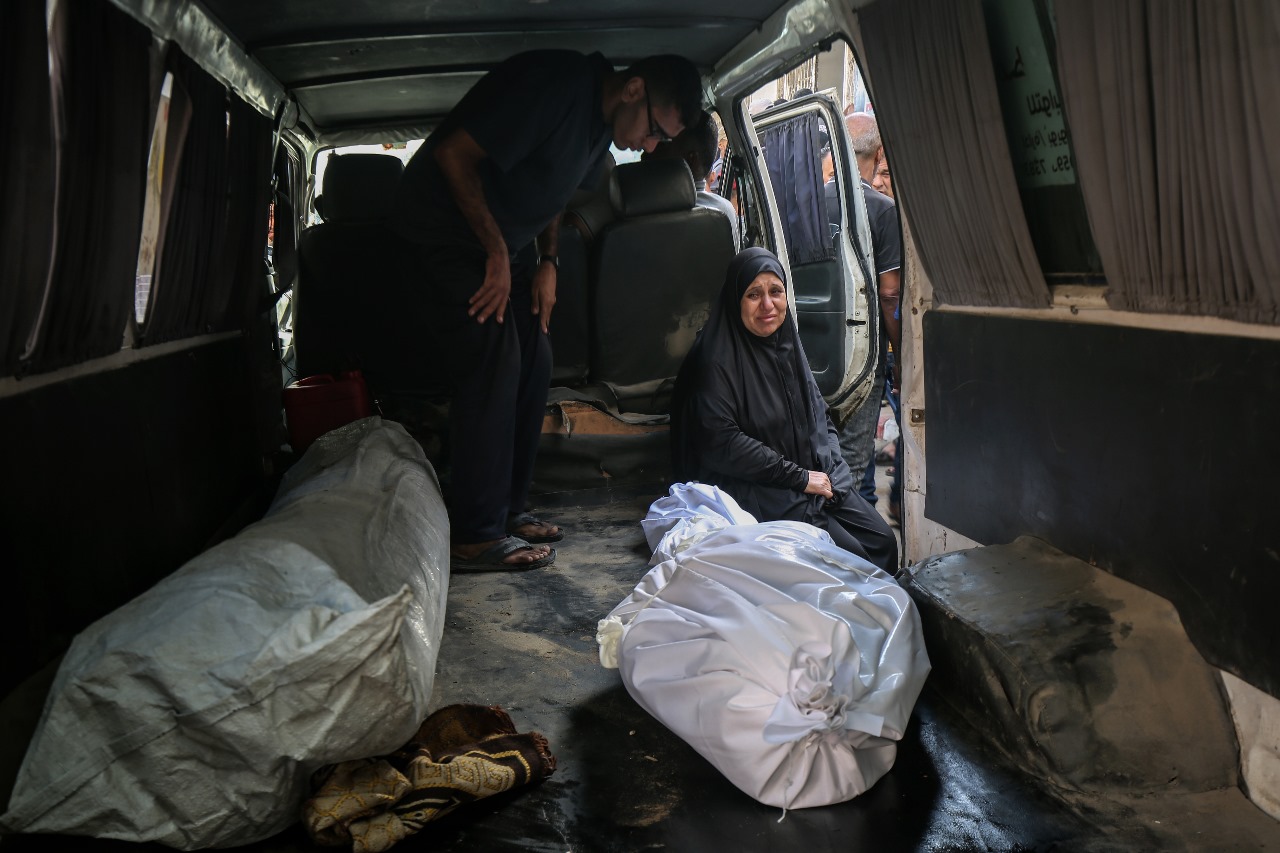
“I think that for so long, the people of Palestine have been silenced and cut off through blockade, through these internet blackouts, through the targeting of journalists and the barring of international journalists into Gaza by the Israeli occupation,” said Burns, a nurse by profession.
“What we’re doing is a tiny drop, but I do think it is a form of resistance because it’s humanizing those who have been dehumanized for so long.”
The group is also in contact with a pharmacist named Omar from Gaza City. He was recently forced to flee on foot with his wife and four children to the Deir al-Balah area, in the central Gaza Strip, Burns said.
“Omar has said that the situation there is far worse than what they were experiencing in Gaza City. He actually wrote to us [on Sept. 23] and said they do not even have a tent,” she said. “He’s just strung together some fabric to provide a basic cover. They have no money for food.”
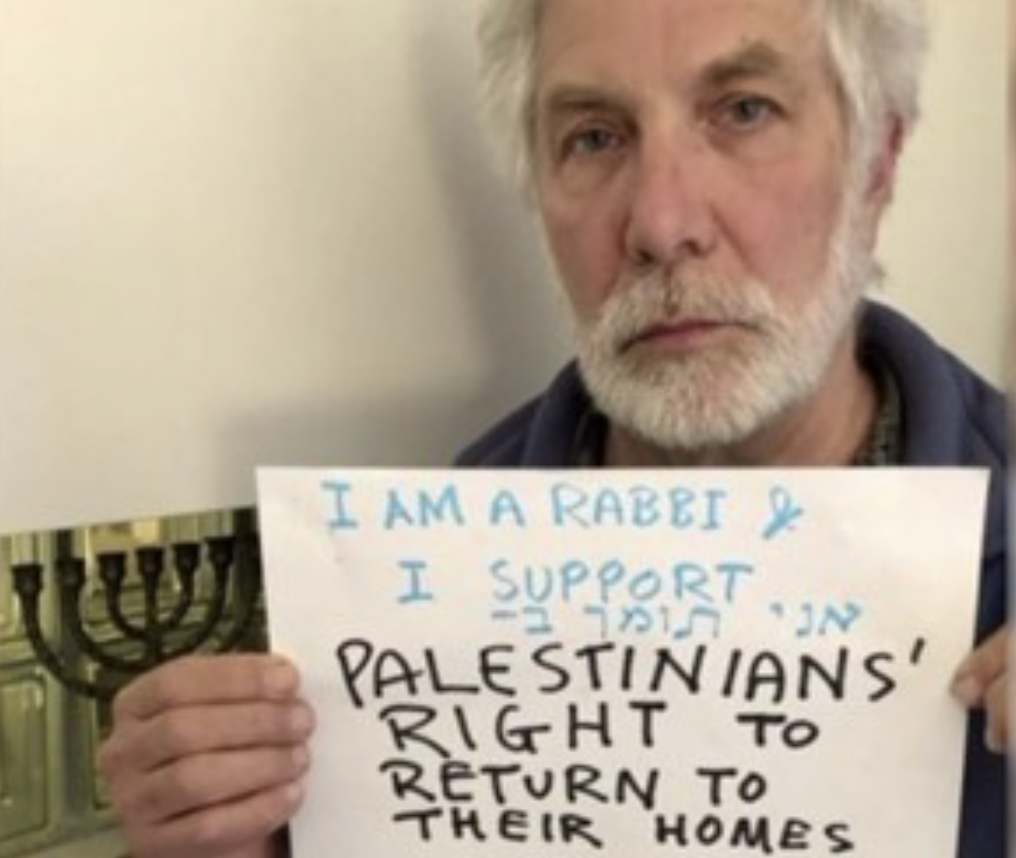
The Connecting Gaza initiative was launched by David Mivasair, a retired rabbi who lives in Hamilton, Ont.
In an interview with the NB Media Co-op, he said they have raised more than $500,000 and “every penny we get goes to people in Gaza.”
Their resources remain stretched to the limit and difficulties include getting funds into the Gaza Strip. For example, Western Union offices have been bombed and PayPal has been restricted, he explained. The group is now using methods such as cryptocurrency.
Those who cannot donate can also contribute by staying in communication with people in Gaza through their ordeal. “They can just bring their love for their fellow human who just needs somebody to listen to them, pay attention to them while they’re going through such suffering,” he said.
The retired rabbi underlined parallels between the Holocaust and the catastrophe currently underway in the Gaza Strip. “After concentration camps were liberated, sometimes they would go into the barracks, and they would find scrawled on the wall: ‘If only someone knew.'”
He recalled meeting Holocaust survivors as a young man. “The way they survived the Holocaust — their entire families were all murdered, right? And their entire village or community was completely annihilated — they survived because someone helped them.”
At least 66,055 people have been killed in Israeli attacks on Gaza since October 2023 — among them 19,424 children — according to figures from the Palestinian Ministry of Health in Gaza cited by Al Jazeera. UN Special Rapporteur Francesca Albanese recently noted that some researchers believe the true death toll is likely 10 times higher.
“It would be hard to be able to prove or disprove this number, especially if investigators and others remained banned from entering the occupied Palestinian territory, and particularly the Gaza Strip,” Albanese said in a Sept. 15 press briefing. “But if this number is confirmed, 380,000 of these are infants under five.”
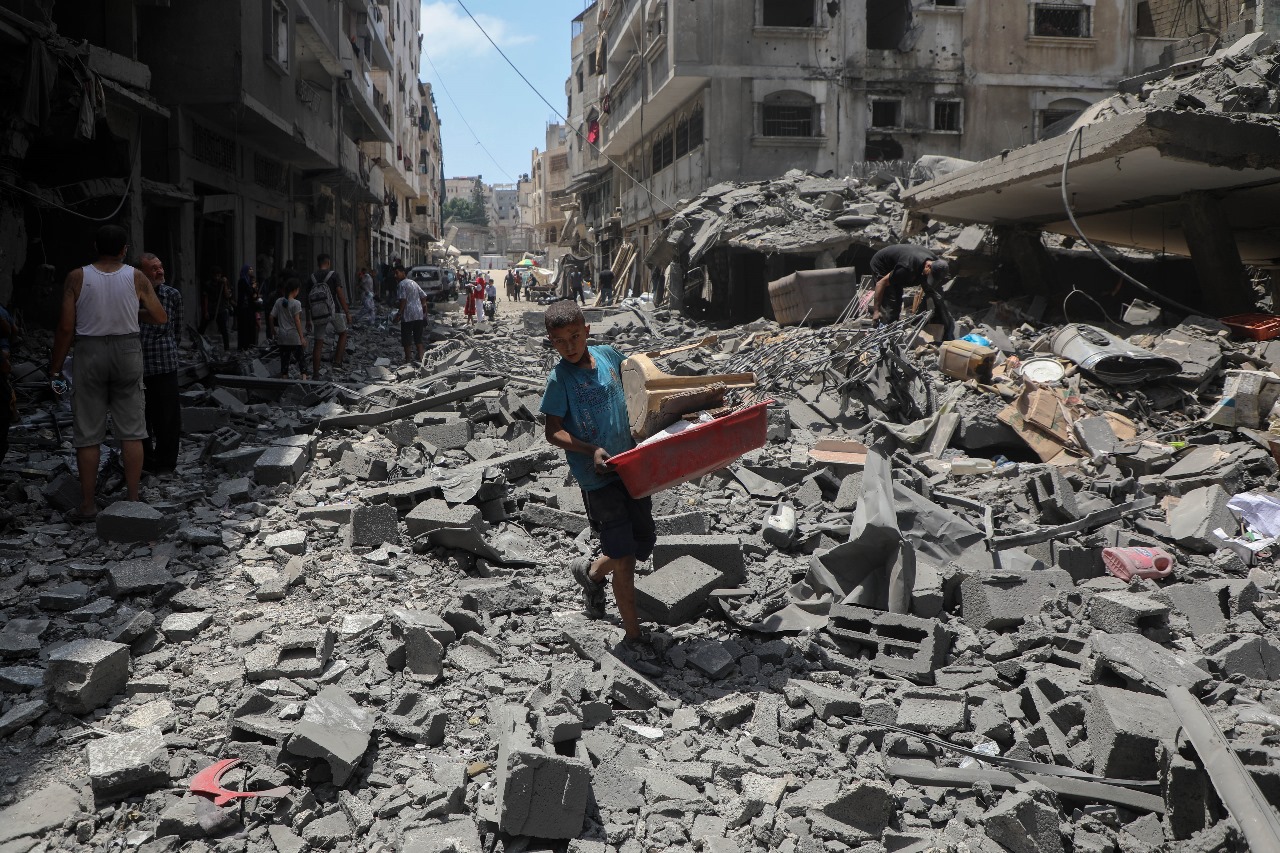
Burns said she’s reached out to her federal representative — Liberal MP David Myles — but received no response.
“I’m appalled,” she said. “I mean, we’ve known it’s a genocide for quite a long time now, and finally the UN has declared that as such,” a reference to the recent findings of a UN commission of inquiry.
In response to queries from the NB Media Co-op, the office of David Myles provided a statement expressing regret that he’d missed emails from Burns, and noting that his office has met with activists from Fredericton Palestine Solidarity.
“I’ve been encouraged in my discussions in the Liberal caucus to see a deep concern for the suffering of civilians in Palestine,” Myles said. He noted, in part, Canada’s recent decision to recognize the State of Palestine. (His full statement is available here.)
In Moncton, Liberal MP Ginette Petitpas Taylor declined to comment on the situation at an event marking the National Day for Truth and Reconciliation.
Back in the Gaza Strip, Jawad — a father of three — documents the horrors of daily life in the Gaza Strip while also caring for his young family. At least 223 journalists and media workers have been killed in Gaza since Oct. 2023, according to the International Federation of Journalists.
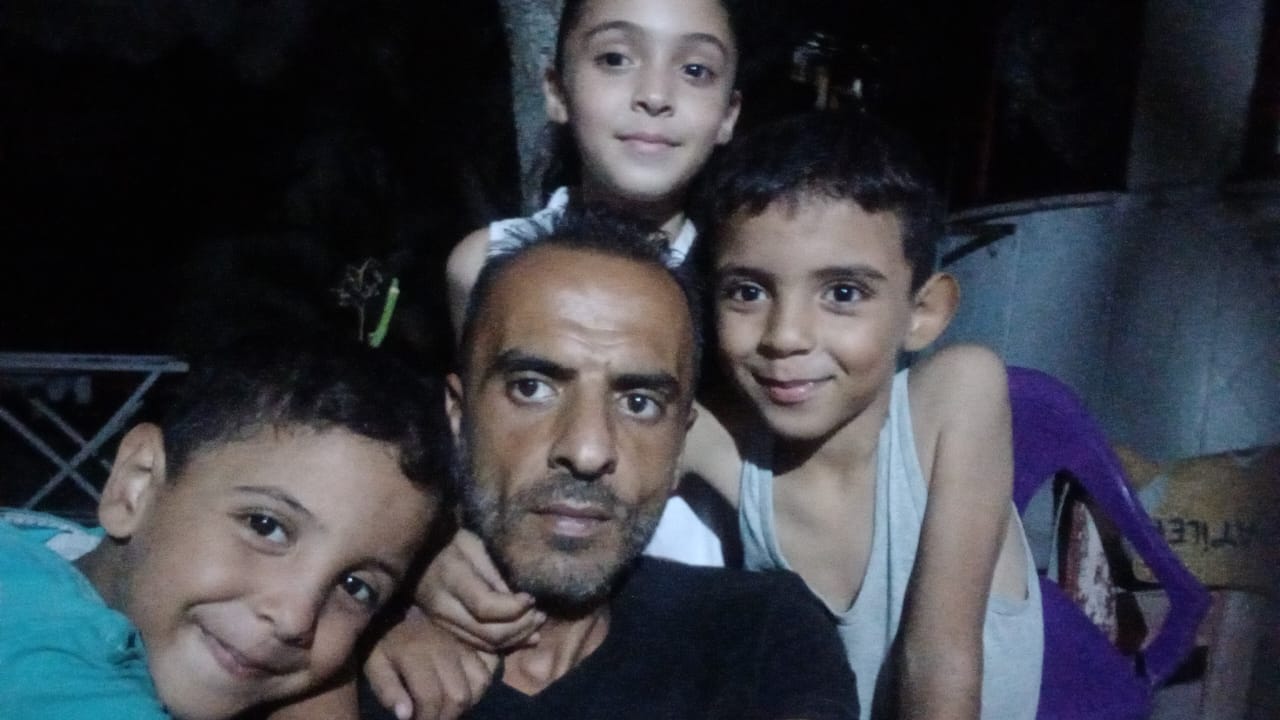
His 11-year-old daughter Jana was at one point hospitalized for malnutrition. Earlier this year, his wife and nine-year-old son Ibrahim were also injured by a bomb in Rafah, during an earlier period of displacement. His eight-year-old son Zain has experienced shock from the sounds of explosions and shelling, making it hard for him to speak, Jawad said.
More recently, Israel’s occupation of Gaza City has forced him to flee his hometown again, which he called “one of the hardest days of my life.” The experience was not only heart-wrenching but dangerous and costly.
“On the way, the car that carried me, my family and my belongings broke down for three hours,” he said. “The sounds of explosions were very close.” He fears for his children: “I cried for them, for their future, for the third year they did not go to school.”
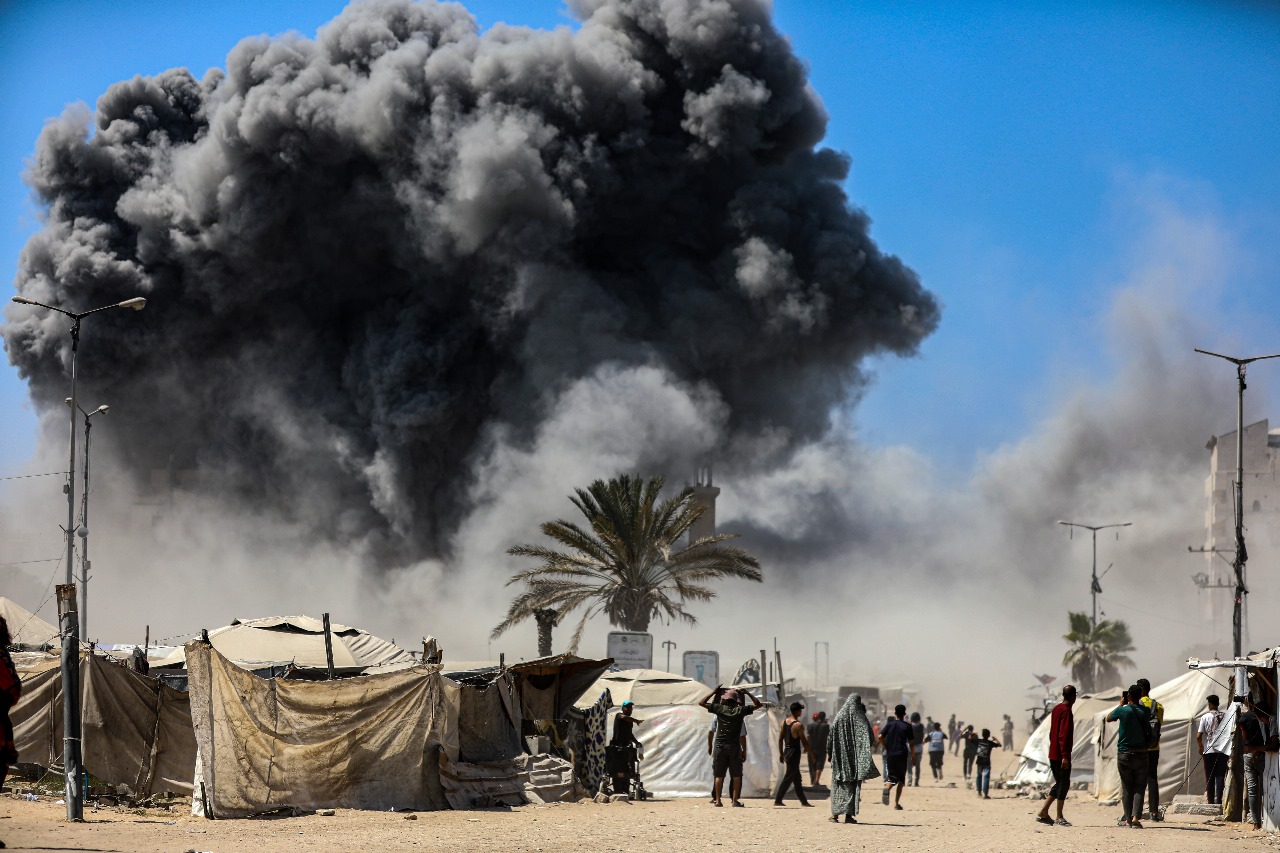
“Their very survival is the most urgent and most pressing need,” said Burns, one the Fredericton activists. She stressed that the ultimate goal for people involved in Connecting Gaza is Palestinian self-determination. “It’s not just a charity organization,” she said.
To learn more about Connecting Gaza and support their work, go to www.connectinggaza.org. To see more work from photojournalist Rizek Abdel Jawad, follow his accounts on Instagram: (www.instagram.com/rizek_eldremle) and Facebook (www.facebook.com/rezek.eldremle).
David Gordon Koch is a journalist with the NB Media Co-op. This reporting has been made possible in part by the Government of Canada, administered by the Canadian Association of Community Television Stations and Users (CACTUS).


![Palestinian photojournalist documents ‘uninhabitable’ Gaza Strip [video]](https://nbmediacoop.org/wp-content/uploads/2025/09/Photo-from-David10-750x536.jpg)
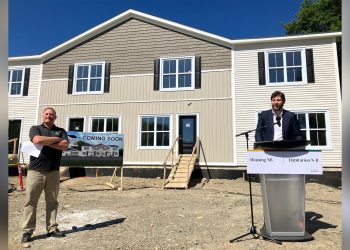
![Tenants target Moncton-area landlord, call for government to end ‘rent control loopholes’ [video]](https://nbmediacoop.org/wp-content/uploads/2025/10/JohnskyOct172025-350x250.jpg)

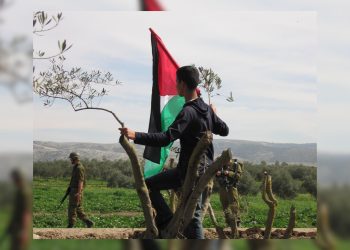


![Radioactivity and nuclear waste under scrutiny in Peskotomuhkati homeland [video]](https://nbmediacoop.org/wp-content/uploads/2025/10/EdwardsAkagiOct52025-1-120x86.jpg)

